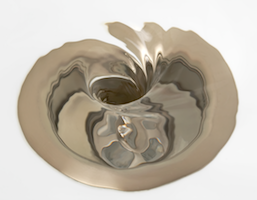
From hair-ridden showers to food-filled kitchen sinks, these tips will help conquer even the most demanding and difficult drainage issues.
Tough hair clogs got you harried?
Hair is the main culprit in most bathroom clogs. If you or a household member has long hair, you are likely to have a greater amount of it in your drains. For hair-clogged drains, pour an entire bottle of a product specially formulated to break down hair clogs, such as Liquid-Plumr Hair Clog Eliminator, which has 70 percent more hair-busting power than other formulas. It works to destroy clogs within minutes and is safe on all pipes, even old rusty ones. Let the gel work for 15 minutes then run hot water for a few minutes to rinse away any remaining gel and lingering strands.
How about a drain check?
If possible, transfer water that won’t drain and any lingering dregs in the sink basin into a bucket. Carefully remove stoppers and strainers from your drain. If you’re removing screws, make sure to keep a close watch so they don’t fall down the drain. If you need to remove stopper parts from under the sink, keep a bucket underneath the pipes. Remove all of the ghastly gunk and goo from stoppers and strainers. Run water to flush down remaining material and test the flow.
Plunge right in
Avoid over-flushing your toilet to prevent flooding the bowl and your bathroom floor. The best tool to unclog a toilet is a plunger with a flange, which is a smaller opening on the bottom of the plunger that resembles a cup. The flange fits perfectly into the toilet bowl drain to give your thrusts more power. Place the plunger into the toilet drain straight and vertical. Create a tight seal with the drain, with the plunger fully submerged in water. Plunge gently at first, then vigorously, in an up and down motion. With a stubborn clog, don’t be shy; add some strength to your thrusts. If the clog remains, or the toilet still isn’t flushing properly, you may need additional support. A drain snake can help break up the clog or a closet auger can help remove larger clogs or foreign objects, such as flushed toys.
Keep clogs from coming back
Even if you have short hair or your drains aren’t currently clogged, it’s a good idea to do a little maintenance to prevent future problems. Products, such as Liquid-Plumr Maintenance, are designed to help keep pipes clear and clean, prevent new clogs and keep them smelling fresh.
Find more tips and tricks to solve your household plumbing problems at Liquid Plums’s website which is actually quite interesting liquidplumr.com.
Photo courtesy of Getty Images